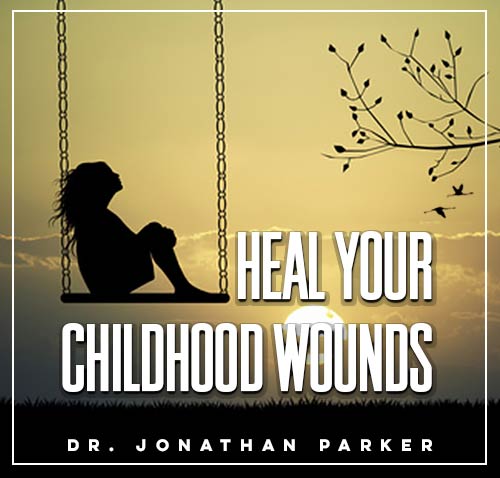Childhood Trauma Resolution: Find Inner Harmony

Before diving in, please note: This post is for informational purposes only. If you’d like to know more about how we approach topics, feel free to check out our friendly Disclaimer Page.
Hey there, amazing readers! 🖐️ Just a quick note: yes, we know there are a lot of ads here. Trust us, we get it—it’s not the prettiest look, but they help us keep this blog alive and kicking. Those pesky little ads cover the costs of all the behind-the-scenes magic, from hosting and tech stuff to creating content we hope you’ll love.
We’re committed to delivering quality posts, and your support (even just sticking around despite the ads) means everything to us. So, bear with us, and thanks for helping us keep the good vibes rolling. Now, on to the fun stuff! 😉
TRANSLATE BUTTON AT THE END OF THE ARTICLE
A Quick Overview
Childhood trauma can have a profound impact on a person’s emotional well-being and overall quality of life.
It is crucial to address past traumas in order to find inner harmony and move forward with resilience.
Understanding the effects of childhood trauma, recognizing the signs and symptoms, seeking professional help, and implementing self-care practices are essential steps in the healing process.
Therapy, mindfulness practices, building a support system, developing coping strategies, creating a safe space, and embracing inner peace are all valuable tools in resolving childhood trauma.
By taking proactive steps towards healing, individuals can cultivate a sense of inner peace and empowerment.
Understanding Childhood Trauma
Childhood trauma refers to any adverse experiences that occur during a person’s formative years, such as physical, emotional, or sexual abuse, neglect, or witnessing violence.
These traumatic events can have a lasting impact on a child’s development and can affect their emotional well-being into adulthood.
Childhood trauma can disrupt a person’s sense of safety, trust, and self-worth, leading to long-term psychological issues if left unresolved.
It is essential to acknowledge and understand the impact of childhood trauma in order to begin the healing process.
Impact on Emotional Well-being
Childhood trauma can have a significant impact on a person’s emotional well-being, leading to symptoms such as anxiety, depression, low self-esteem, anger issues, and difficulty forming healthy relationships.
Individuals who have experienced childhood trauma may also struggle with regulating their emotions and coping with stress.
These emotional difficulties can manifest in various ways in adulthood, affecting every aspect of a person’s life.
It is important to address these emotional challenges in order to find inner harmony and improve overall well-being.
Recognizing Signs and Symptoms
Recognizing the signs and symptoms of childhood trauma is crucial in seeking help and beginning the healing process.
Some common indicators of unresolved childhood trauma include:
Flashbacks or intrusive memories of traumatic events
Avoidance of situations that remind the individual of past trauma
Difficulty trusting others or forming close relationships
Chronic feelings of fear, anxiety, or sadness
Self-destructive behaviors such as substance abuse or self-harm
If you or someone you know is experiencing these symptoms, it is important to seek professional help and support in addressing childhood trauma.
Seeking Professional Help
Seeking professional help from a therapist or counselor is a crucial step in resolving childhood trauma and finding inner harmony.
Therapists can provide a safe and supportive space for individuals to process their emotions, gain insight into their trauma, and develop coping strategies.
Through therapy, individuals can explore the root causes of their trauma, work through painful memories, and learn healthy ways to regulate their emotions.
Therapists can also provide valuable tools and techniques to help individuals navigate the healing process.
Importance of Self-Care
Self-care is essential in promoting healing and well-being for individuals who have experienced childhood trauma.
Engaging in activities that promote self-compassion, relaxation, and emotional regulation can help individuals manage their symptoms and build resilience.
Some self-care practices that can be beneficial for those healing from childhood trauma include:
Engaging in regular exercise
Practicing mindfulness and meditation
Spending time in nature
Discover "SUPERFOODS: The Key to Health and Balance🥗" 🌿🌺
Journaling or creative expression
Connecting with supportive friends and family members
By prioritizing self-care, individuals can nurture their emotional well-being and cultivate inner peace.
Healing Through Therapy
Therapy is a powerful tool for healing from childhood trauma, as it provides a structured and supportive environment for individuals to process their emotions and experiences.
Different therapeutic approaches, such as cognitive-behavioral therapy, trauma-focused therapy, or EMDR, can help individuals work through their trauma and develop healthy coping mechanisms.
Therapy can also help individuals build resilience, improve their self-esteem, and learn to navigate relationships in a healthy way.
Through therapy, individuals can gain insight into their trauma and find healing and resolution.
Exploring Mindfulness Practices
Mindfulness practices can be beneficial for individuals healing from childhood trauma, as they can help cultivate self-awareness, emotional regulation, and inner peace.
Mindfulness involves paying attention to the present moment without judgment, which can help individuals break free from the cycle of rumination and anxiety.
Practices such as deep breathing, meditation, yoga, and body scans can help individuals connect with their bodies and emotions in a safe and gentle way.
By incorporating mindfulness into their daily routine, individuals can learn to manage their emotions and find a sense of calm amidst the chaos.
Building a Support System
Building a strong support system is essential for individuals healing from childhood trauma, as it provides a sense of safety, validation, and connection.
Surrounding oneself with understanding and empathetic friends, family members, or support groups can help individuals feel heard and supported in their healing journey.
Supportive relationships can offer a sense of belonging, reduce feelings of isolation, and provide a source of comfort during difficult times.
By leaning on a supportive network, individuals can navigate the challenges of healing from childhood trauma with strength and resilience.
Developing Coping Strategies
Developing healthy coping strategies is essential for individuals healing from childhood trauma, as it allows them to manage their emotions and navigate triggers in a healthy way.
Some effective coping strategies for dealing with childhood trauma include:
Practicing relaxation techniques such as deep breathing or progressive muscle relaxation
Engaging in creative outlets such as art, music, or writing
Setting boundaries with toxic relationships or situations
Seeking professional help when needed
Engaging in physical activities such as exercise or yoga
By developing healthy coping strategies, individuals can cultivate resilience and empower themselves to navigate the challenges of healing from childhood trauma.
Creating a Safe Space
Creating a safe space for oneself is crucial in the healing process from childhood trauma, as it provides a sense of security, comfort, and control.
A safe space can be a physical environment that promotes relaxation and calmness, such as a cozy corner in a room or a peaceful outdoor setting.
It can also be a mental space that individuals can retreat to when they need to feel grounded and centered.
By creating a safe space, individuals can process their emotions, soothe their nervous system, and find solace in moments of distress.
Embracing Inner Peace
Finding inner peace is a transformative aspect of healing from childhood trauma, as it allows individuals to release past pain, cultivate self-compassion, and embrace their inner strength.
Inner peace involves accepting oneself fully, forgiving past hurts, and letting go of negative self-beliefs.
Through practices such as mindfulness, therapy, self-care, and connecting with supportive relationships, individuals can nurture a sense of inner peace and harmony within themselves.
By embracing inner peace, individuals can heal from childhood trauma and move forward with resilience and empowerment.
Moving Forward with Resilience
Moving forward with resilience is a powerful outcome of the healing journey from childhood trauma, as it allows individuals to navigate life’s challenges with strength, courage, and self-assurance.
Resilience involves bouncing back from adversity, adapting to change, and maintaining a positive outlook on life.
By cultivating resilience through therapy, self-care, mindfulness practices, and building a support system, individuals can develop the inner resources to overcome past trauma and thrive in the present moment.
With resilience as a guiding force, individuals can embrace their inner strength, heal from childhood trauma, and create a fulfilling and empowered life.
Discover "Sports Nutrition: The Importance of Nutrition and Exercise for Overall Health 🥗🏋️"
Conclusion
Resolving childhood trauma and finding inner harmony is a transformative journey that requires self-awareness, courage, and resilience.
By understanding the impact of childhood trauma, recognizing the signs and symptoms, seeking professional help, and implementing self-care practices, individuals can begin the healing process.
Therapy, mindfulness practices, building a support system, developing coping strategies, creating a safe space, and embracing inner peace are all valuable tools in resolving childhood trauma and moving forward with resilience.
By taking proactive steps towards healing, individuals can cultivate a sense of inner peace, empowerment, and well-being.

The Enlightenment Journey is a remarkable collection of writings authored by a distinguished group of experts in the fields of spirituality, new age, and esoteric knowledge.
This anthology features a diverse assembly of well-experienced authors who bring their profound insights and credible perspectives to the forefront.
Each contributor possesses a wealth of knowledge and wisdom, making them authorities in their respective domains.
Together, they offer readers a transformative journey into the realms of spiritual growth, self-discovery, and esoteric enlightenment.
The Enlightenment Journey is a testament to the collective expertise of these luminaries, providing readers with a rich tapestry of ideas and information to illuminate their spiritual path.
Our Diverse Expertise 🌟
While our primary focus is on spirituality and esotericism, we are equally passionate about exploring a wide range of other topics and niches 🌍📚. Our experienced team is dedicated to delivering high-quality, informative content across various subjects ✨.
To ensure we provide the most accurate and valuable insights, we collaborate with trusted experts in their respective domains 🧑🏫👩🏫. This allows us to offer well-rounded perspectives and knowledge to our readers.
Our blog originally focused on spirituality and metaphysics, but we’ve since expanded to cover a wide range of niches. Don’t worry—we continue to publish a lot of articles on spirituality! Frequently visit our blog to explore our diverse content and stay tuned for more insightful reads.







